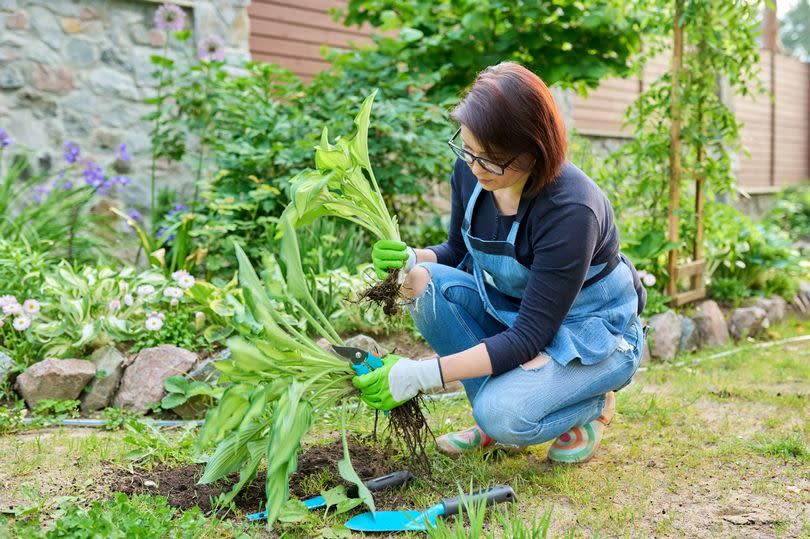Experts debunk viral gardening hacks that could harm your garden and attract pests

Gardening enthusiasts, beware of viral hacks. With the arrival of summer, Brits are seizing the opportunity to tend to their gardens under the sun. However, outdoor experts have highlighted five common mistakes that should be avoided, despite their popularity on social media platforms.
The gardening specialists at St. Modwen Homes warn that many of these dubious 'hacks', often found on TikTok, can not only lead to expensive structural damage but could also attract unwanted pests. Therefore, it's crucial to scrutinise everything you come across online, reports the Mirror.
1. Gluing stones
While colourful glass stones can add a charming touch to your garden, experts have observed numerous instances of people gluing them to the ground. Although this might seem like an effective way to secure them, it can actually cause significant problems.
"Glued stones can prevent proper water drainage, leading to water pooling or runoff issues, which can negatively affect plant growth and in some cases, more serious damage," the experts warned. Plus, glued stones are permanent, making it difficult to rearrange or remove them if you ever want to change your garden's design in the future."
Additionally, small creatures such as frogs and insects often use loose stones for shelter. Therefore, gluing these stones could 'disrupt the natural balance of your garden's ecosystem'.
2. DIY lawn aerating shoes
Next, the experts turn their attention to a peculiar pair of shoes. Essentially, these are standard walking boots with spikes attached to the soles.
These spiked shoes can be purchased online, but many garden enthusiasts have taken to creating their own versions by drilling nails into wood and stomping around their lawns. The belief is that the holes created will 'aerate' the soil, allowing more air and water to reach plant roots.
However, the experts disagree, stating that the spikes on aerator shoes 'don't penetrate deeply enough to provide effective aeration'. They explained: "Achieving uniform coverage is [also] difficult, as the effectiveness depends on how evenly you walk across the lawn."
"Additionally, the spikes can damage the grass, particularly if used frequently or improperly, leading to patches of unhealthy or dead grass. This can ultimately do more harm than good to your lawn's overall health."
3. Cardboard garden borders
The experts also highlight the common mistake of creating cardboard borders. While it may seem like an easy way to line a flower bed or gravel patch without needing to dig, this hack can cause several problems.
The experts elaborated: "Are you renting a place and don't want to disrupt the soil, or simply want to create a beautiful garden border without getting the shovel out? #GardenTok users have turned to using cardboard to line a flowerbed or gravel patch instead of digging a new one."
"Layers of cardboard and organic material can attract pests such as rodents and insects, which may damage your current landscape, and future plants."
It turns out that rats and mice have a particular fondness for cardboard, often using it for nesting or sleeping. "Plus, young plants with delicate roots might struggle to penetrate the cardboard layer initially, slowing down their establishment and affecting their overall growth," the experts warned.
4. Pallet decking
Garden enthusiasts looking to save money might consider creating decking from old pallets, but experts advise against this due to the 'low quality' of the materials.
"Pallets are often made from low-grade wood that is not treated for outdoor use, making them prone to rotting, warping, and splintering when exposed to the elements," they explained. "Furthermore, the wood used in pallets generally has a shorter lifespan compared to traditional decking materials."
And if you think that's bad, specialists also caution that using pallets can result in dangerous structural weaknesses and even potential decking collapse, primarily because pallets are 'not designed to bear significant weight', unless specifically engineered for that purpose.
They concluded by saying: "This not only compromises safety, but also results in a less durable and less visually appealing outdoor space."

 Yahoo News
Yahoo News 
